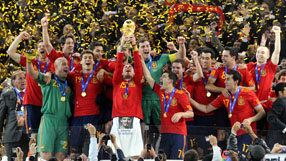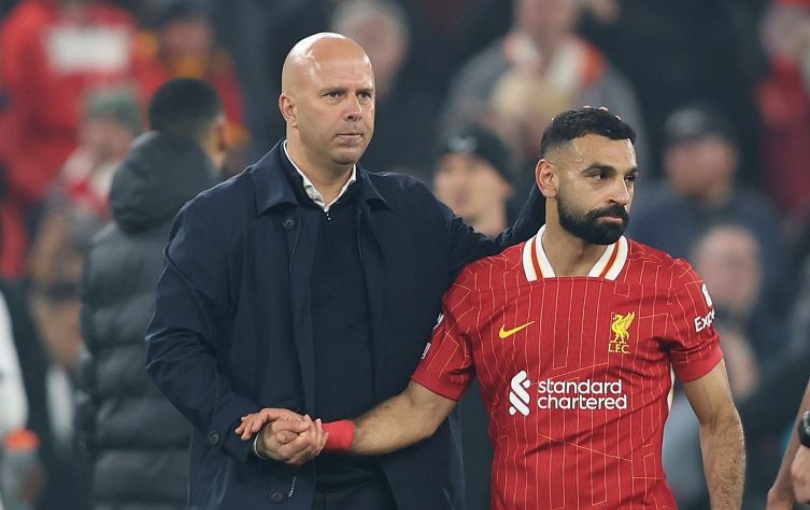World Cup win a chance to fix Spanish woes
MADRID - As Spain gears up for the new football season, last month's headlines trumpeting the nation's first World Cup triumph have been replaced by allegations of match-fixing and tales of financial mismanagement.

Alicante-based club Hercules stand accused of paying a rival team's goalkeeper to throw a match last season and help them secure promotion to the top flight.
Hercules deny any wrongdoing but government lawyers and the Spanish football federation (RFEF) are seeking official access to taped phone conversations and other evidence from a separate investigation that have been widely published in local media.
La Liga side Real Mallorca, who are in administration, have meanwhile been excluded from European competition by governing body UEFA due to their financial problems, highlighting the parlous state of many debt-ridden Spanish clubs.
It is a worrying state of affairs for a professional league that proclaims itself the world's best and which boasts a large proportion of the game's top players and hugely rich and successful clubs like Real Madrid and Barcelona.
However, the national team's victory in South Africa offers a unique chance to tackle the problems afflicting football and the authorities should use the momentum generated by the World Cup victory to put their house in order, analysts have said.
An important step would be to dispel the perception that the RFEF and the government lack the political will to hand out effective punishments for match-fixing, they added.
Abraham Paz, a Hercules club captain, was quoted as saying last week that the Spanish second division had long been prone to the practice.
Get FourFourTwo Newsletter
The best features, fun and footballing quizzes, straight to your inbox every week.
SERIOUS MATTER
"There have always been rewards for winning but having them for losing is a very serious matter," Placido Rodriguez, a professor of economics at Oviedo University and a former chairman of La Liga club Sporting Gijon, told Reuters.
"If the evidence (against Hercules) proves correct we must show no mercy to the cheats."
The authorities, including the government sports council (CSD) and the professional soccer league (LFP), have also failed to rein in clubs like Mallorca who have been living far beyond their means and are deep in the red, analysts said.
Jose Maria Gay, a professor of accounting at the University of Barcelona and an expert on football finances, estimates that the combined debts of the clubs in the top three tiers of the league are not far short of 6 billion euros ($7.7 billion).
"In that sense, domestic Spanish football has never been in a worse state," Gay told Reuters.
The 20 clubs in the top flight had total debts of 3.526 billion at the end of the 2008/09 season, with Real Madrid leading the way with 683 million, according to a study Gay published in May based on clubs' accounts.
Mallorca had income of 28.1 million euros during the same period and costs of 43.9 million, with a debt of 85 million, the study showed.
PREVENT PROFLIGACY
Angel Barajas, associate professor of financial management at the University of Vigo, said it was up to the authorities to establish mechanisms to force clubs to r
